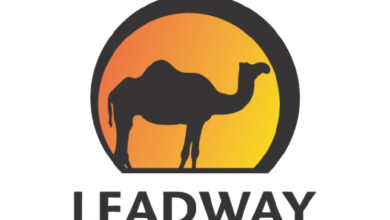Highlighting Statutory Insurance Requirements For Corporate Organisations In Nigeria

Introduction
Dentons ACAS-Law, in it’s article “Statutory insurance requirements for corporate organizations in Nigeria,” listed the essential roles statutory insurance plays for corporate organizations in Nigeria and emphasised the need for corporate organizations to seek legal counsel to ensure full compliance with the relevant statutory insurance laws in Nigeria.
In the dynamic landscape of corporate operations in Nigeria, where risk and uncertainties are ever-present, statutory insurance play a pivotal role in safeguarding the interests of employees, the public, and property. While many businesses recognize the need for insurance as a risk mitigation mechanism, the Nigerian legal framework mandates specific insurance policies that corporate organizations must adhere to. This article reviews the essential statutory insurance for corporate organizations in Nigeria, shedding light on the implications of non-compliance with these mandates.
Understanding Insurance
Before delving into the statutory requirements, it’s crucial to understand the concept of insurance. Black’s Law Dictionary defines insurance as “an agreement by which one party (the insurer) commits to do something of value for another party (the insured) upon the occurrence of some specified contingency, usually in exchange for a premium.” In essence, insurance provides financial protection against losses and liabilities.
Statutory Insurance Mandates
Nigeria’s legal framework sets out various statutory insurance policies that corporate organizations are required to have. These mandates are primarily defined in the Insurance Act 2003 and other relevant statutes. Below are some of the key statutory insurance requirements that businesses in Nigeria must be aware of and comply with:
Group Life Insurance for Employees:
Under Section 4(5) of the Pension Reform Act 2014 (PFA), private and public organizations with five or more employees are mandated to maintain a Group Life Insurance Policy for their employees.
The insurance policy must cover each employee for a minimum of three times their annual total emolument. Non-compliance with this provision may lead to penalties, including fines and imprisonment, as provided for under Section 85 of the PFA.
Health Insurance:
The National Health Insurance Act 2022 (NHIA) obliges all residents of Nigeria to obtain health insurance. Organizations with five or more employees in both the public and private sectors are required to facilitate the acquisition of health insurance for their employees.
The responsibility for obtaining health insurance is typically shared between the employer and the employee, with the employer often taking the lead in securing the insurance.
Insurance of Public Buildings:
Sections 64 and 65 of the Insurance Act 2004 stipulate mandatory insurance requirements for certain types of buildings. Buildings of more than two floors require construction insurance to cover construction risks caused by negligence.
Public buildings, including tenement houses, schools, medical facilities, and premises accessed by the public for various purposes, must be insured against hazards like collapse, fire, earthquake, storm, and flood. Failure to insure such public buildings may result in monetary fines or imprisonment, or both, in some cases.
Workmen’s Compensation Insurance:
The Employee Compensation Act, 2010 (ECA) establishes a system for compensating employees for injuries or damages arising from work-related activities.
Employers are mandated to make monthly contributions to the Employee Compensation Fund, managed by the Nigeria Social Insurance Trust Fund. The funds are used to provide compensation and rehabilitation for employees who sustain injuries or damages while on the job.
Motor Third-Party Insurance:
Mobility is an essential part of any economy and or commerce around the world. As important as it is, it also has its attending flaws, such as accidents causing damage to vehicles and humans. The Motor Vehicles (Third Party Insurance) Act has therefore been enacted to provide remedy for the effect and or mitigate damages arising from vehicular movements.
By Section 3 of the Act, all users of motor vehicles are to insure their vehicles against third party risks. This is the minimum requirement for every vehicle owner, either privately or corporately owned in Nigeria. Failure to comply with Act regarding this requirement attracts penalties which could be monetary, imprisonment or disqualification from driving.
Marine Insurance:
Transportation by sea is one of the oldest means of transportation that gained prominence as the world evolved. Its transnational importance cannot be over-emphasized, therefore, and as it evolved, insurance policies safeguarding maritime interest and cargo were also developed or put in place. Consequently, it is apt to assert that marine insurance is one of the oldest forms of insurance in the world.In Nigeria, a combination of the Insurance Act and the Marine Insurance Act jointly makes provision for marine insurance in Nigeria and makes it mandatory for operators in the marine sector to mandatorily subscribe to marine insurance in respect of ships, boats and most importantly, the cargo that is carried in them.
Aviation Insurance:
This type of insurance is literally the third of its kind which may generally be classified as “transportation insurance”. As it is with Marine Insurance and Motor Third-Party Insurance, the law places a mandatory obligation on operators in the aviation sector to subscribe to certain insurance policies in respect of their interest, cargoes and air passengers.
The provisions of the Civil Aviation Act 2006 and the Nigeria Civil Aviation Regulations 2015 contains general provisions requiring virtually all operators or players in the aviation sector to take out insurance policies regarding their operations and also on third party users of their operations. Such operators include organizations who own aircraft, operate a charter service or airline, pilot commercial or recreational airlines, handle baggage or ground services, refuel aircrafts among other related aviation services. Failure to take out statutory insurance regarding their operations can lead to revocation of licenses issued by regulatory agencies and or fines.
Conclusion
We note that there are different regulations and guidelines established under the Acts highlighted above to guide corporate organizations in complying with the requirements of the Acts. The relevant regulatory agencies are also taking steps to ensure full and timely compliance with the statutory requirements including imposition of fines and penalties on defaulting organizations.
Therefore, it is imperative for corporate organizations to seek legal counsel to ensure full compliance with the relevant statutory insurance laws in Nigeria.
Compliance with these statutory insurance mandates not only safeguards the interests of employees, the public, and property but also protects businesses from potential legal consequences, including fines and imprisonment. By understanding and adhering to these requirements, corporate organizations in Nigeria can navigate the regulatory landscape and prioritize risk management and employee welfare.





